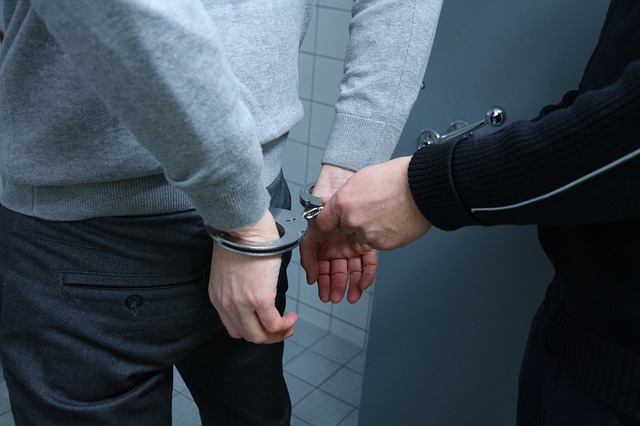

It’s a sobering statistic—Black Americans consist of 13% of our population, but are killed by police at over twice the rate of white Americans. Racial profiling is a huge problem in American policing.
What is racial profiling? This is the act of targeting a person or group based on the color of their skin and stereotypes, rather than based on any specific actions that person has taken.
This means people, often young men of color, are pulled over by police, arrested, or detained. This is due to bias on behalf of the police officer, rather than having done anything wrong.
How can we stop this? Unfortunately, there are no simple solutions to racial profiling.
Experts have yet to work out exactly what we can do to stop this from happening. However, there are a number of theories.
To learn more, keep reading for a few ideas about how we can prevent racial profiling in policing.
Contents
When working to end racial profiling in policing, one of the best strategies is education. One of the basic tenets of Civil Rights Law is that all citizens have equal rights.
Therefore, police officers need to understand how and why racial profiling is a violation of this.
We can show either implicit or explicit bias against someone, which is often an issue in policing. Implicit bias is a subconscious, unintentional decision to arrest someone or pull them over.
However, an explicit decision is one that’s made intentionally. Through ongoing education, offices can learn why biases exist and can learn coping strategies to learn how they can remove them from their police work.
Education isn’t only for officers fresh out of the academy. All policemen and women should undergo regular education sessions, so that they’re aware of best practice and new developments in the field.
We frequently see racial profiling when making traffic stops. An officer might pull a driver over based on the color of their skin—if that driver was white, would they have made the same decision?
Unfortunately, police decisions are sometimes based on stereotypes, with the mistaken belief that a driver of Black or Hispanic origin is more likely to be doing something illegal than other drivers. It’s often men, especially young men, that are targeted in traffic stop situations.
Police have a lot of flexibility and discretion when it comes to deciding who they pull over. It is thought that by limiting the discretion of police, this could put an end to a lot of racial profiling.
For example, if officers had clear guidelines and when, why, and how they pull someone over (such as a list of actions a driver might do), this would reduce the choice of the officer in who they pull over.
Some experts think that hiring a more diverse workplace can help us work out how to end racial profiling. The theory is that, the more people are exposed to people from diverse backgrounds, the less explicit racism will be shown by that person.
If police departments are more diverse, with staff from all sorts of backgrounds, genders, and ages, employees learn more about different cultural groups, fostering understanding and respect.
However, this probably won’t be true for everyone. Unfortunately, some people aren’t going to change their racist beliefs based on their colleagues.
That being said, increasing diversity in the workplace is always a good place to start.
Can training sessions end racial profiling? They can’t hurt.
Organizing training days, which include role-playing real-life examples of racial profiling, and the impacts to the community from these decisions can be helpful. Role-plays of real-life situations can help police improve their decision-making skills and learn how to react fast to make smart decisions.
Regular training sessions can be beneficial for bringing staff together and addressing serious topics, such as racial profiling.
Generally, it’s always better to teach with the carrot instead of the stick—that is, encourage staff to make the right decision and praise them for doing so, rather than focus on punishment.
However, sometimes it can be helpful to remind staff of the consequences of racial profiling. Tragically, cases of racial profiling often involve guns and end up with an innocent person being shot.
This is often a young person, with their life ahead of them, who has now been taken away from their family and community.
There are also harsh consequences for police officers found guilty of racial profiling. They are very likely to lose their jobs, pensions, and even face serious jail time.
Officers in these situations also end up outcasts in their community, losing relationships and friendships once their racist ways are exposed.
Make sure staff are aware of the serious consequences they face if they are involved with racial profiling.
As you can see, this is a difficult and complicated topic. When it comes to solutions to racial profiling, there isn’t one clear answer that we can put in place.
However, we can all work together to address the problem. Everyone, whether you’re a police officer or not, can think about how your daily choices in life impact racism and racial profiling.
Try to always make the right choices, support diversity, and help to create a community where we respect and support one another. Although we have a long road ahead, we can all do our part to help end racial profiling.
Was this article helpful? If so, please keep reading to learn more.
The year 2020 and the pandemic threw a wrench into everyone's plans. Companies that were…
AI is successful in boosting the productivity of organizations while helping them save cost and…
Suppose you battle back discomfort or other associated ailments due to sitting for lengthy periods…
In November 2023, investor Maksym Krippa acquired the Parus Business Center, redefining the commercial real…
Programmers create computer programs, mobile solutions and also analyse the needs of their clients and…
A trip to Santiago is sure to be memorable by default as simply seeing this…